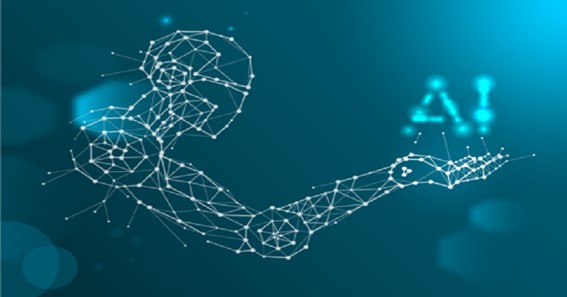Artificial intelligence is one of the fastest developing topics in computing, and many programmers are attempting to understand it to ace their careers. You’ve come to the correct spot if you’re seeking the finest courses to study AI Technology. This article will discuss the most acceptable methods for learning AI fundamentals for practising AI.
AI for Everyone by Andrew Ng
This Andrew Ng Artificial Intelligence Course is mostly nontechnical. It is designed for those who don’t need to understand the in-depth mechanics of AI but want to learn how to effectively leverage AI in their businesses, roll out AI projects, or collaborate with an AI team. It’s also an excellent course for engineers, developers, and other technical individuals who want to learn about the commercial side of AI. It is informative and thorough for those who are new to machine learning.
This six-hour course was designed by Andrew with commercial uses in mind, making it incredibly distinctive and one-of-a-kind. The fact that now the system is presented by Andrew himself, a pioneer and significant contributor in artificial intelligence, adds to its popularity. This course is for everyone who recognizes the usefulness of AI and is interested in the topic.
click here – Why do you need to hire a personal injury lawyer in Iowa?
Machine learning by Stanford University
The notoriety of this ML curriculum can be judged because it has already been taken by 3.5 million undergrads, with 93 percent of them giving it a 5-star rating. Without a doubt, Ai researchers recommend this curriculum as the single most significant resource for everyone interested in learning AI and machine learning.
It gives students a solid foundation in the theoretical, analytical, and computer engineering basics of advanced machine learning systems. The learning materials are extensive, with about 55 hours of footage spread out over 11 weeks.
The course employs the open-source software package Octave for programming, which is an easy method to master machine learning principles. An instructional video for Octave/MATLAB is contained in the curriculum. You can find this course on RarBG and begin your career on Artificial learning.
click here – 5 Website Personalization Best Practices for 2022
Deep learning specialisation by Andrew Ng
Deep Learning is a branch of AI that is fast growing and driving many advancements and revolutions that AI is lauded for. Andrew Ng’s Coursera Machine-learning specialty aims to allow series for anyone interested in learning about AI and supervised learning, how to utilise it to solve issues, and how to pursue a career in AI.
Because this is not an introductory curriculum, students should be familiar with Python language and maths and some skills and understanding of machine learning. This specialisation is quoted as the logical choice after Andrew Ng’s Coursera Device Training session. This is a five-course specialty where students gain crucial machine learning technical knowledge and techniques.
In addition, courses address various case studies in fields like medicine, driverless driving, gesture recognition interpretation, music production, and language processing. Participants work on various intriguing projects, including developing a facial recognition system and a rudimentary translation system, among others. There are also interviews and conversations with top executives and pioneers in the industry, which provide students with professional guidance and help them understand challenges they will encounter in the real world.
IBM Applied AI Professional Certificate
IBM, a leading global leader in technology and one of the innovators in AI innovation, produced this Expert Certificate program in Artificial Intelligence. It instils a solid grasp of artificial intelligence, its implementations, and use scenarios. Machine learning, information science, language processing, picture categorization, image processing, OpenCV, and APIs are among the ideas and techniques covered. Students also learn how to get initiated with pre-built AI intellect rather than having to build their own AI models and backend services.
This is a six-course entry-level AI certification that anyone may take with both scientific and nontechnical expertise. The program’s first three classes also make up the entire AI Underpinnings For Everyone. This system’s curriculum is vast and involves a range of hands-on learning tasks, such as constructing your Chatbot, constructing, learning, and testing good stuff classifiers, and developing a machine vision web infrastructure to the cloud.
MicroMasters® Program in Artificial Intelligence by Columbia University
Columbia University’s edX platform hosts this Artificial Intelligence Certificate program. It is a demanding grad industrial program that accounts for 25% of the courses required for a Columbia Master’s degree in Computer Science. The curriculum consists of four modules that provide a solid foundation in AI and machine learning and two of its most important applications: automation and 3d animations.
The curriculum also contains examinations, coding projects, participant assignments, and public discussion forums in addition to the video lectures. There is a principle of balance on theory and practice throughout the courses, with several tasks and projects strewn around. Students will create a rudimentary search agent and AI-powered diversions and regression analysis models.
The application demands a basic grasp of statistics, collegiate algebra, calculus, and familiarity with the Python programming language. The complete curriculum is offered free online, with certification accessible for a fee. Participants who pay for the priced certificates and finish all courses obtain a Columbia University MicroMasters program credential.
Conclusion
There are several programs and classes on the Web to study Artificial Intelligence, but almost all of them are either uninteresting or overly complex, even for experienced programmers. But this list compiled above is with the proper combination of theory practice.

